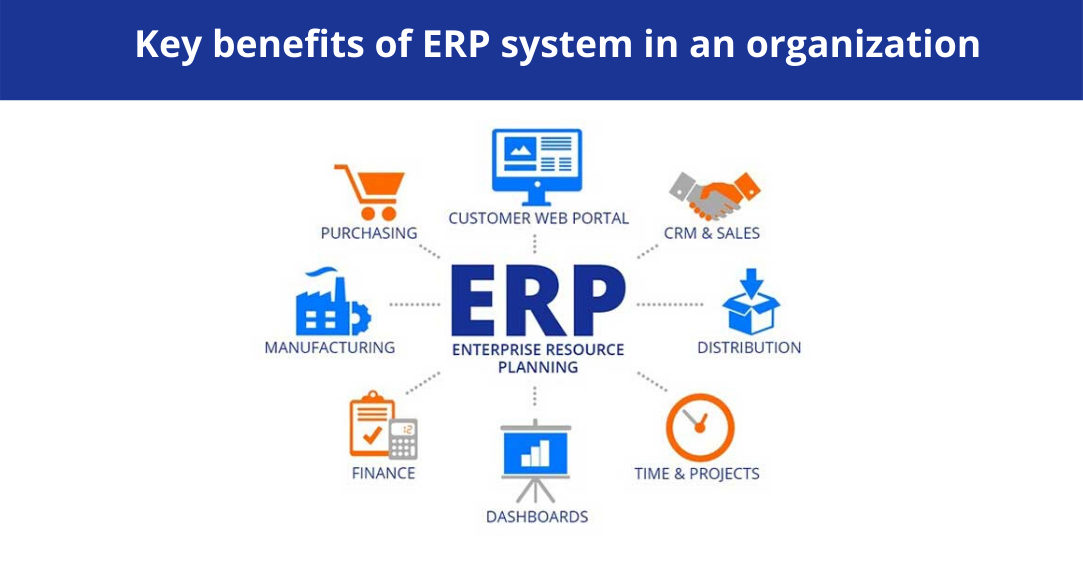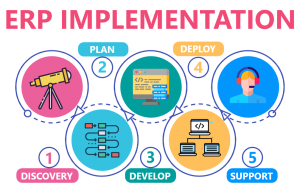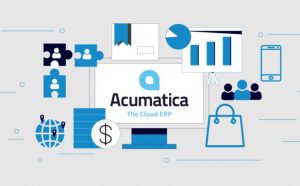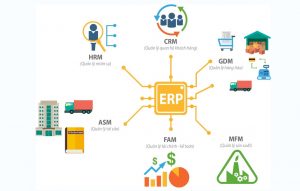ERP Benefits : Traditional business models are evolving and becoming more sophisticated, leading to the need for more sophisticated management systems. Connected IT, Ireland, has for many years, been at the forefront of enterprise resource planning, including ERP software, ERP implementation and ERP project management.
Many successful businesses reach a stage where they become more difficult to manage, where departments begin to work in silos, and where communication and decision-making start to become more complex, even ineffective.
It is usually at this time that inefficiencies start to creep into the system, leading to poor resource allocation, management frustration and low staff morale. It is a scenario that ERP experts like Connected IT come across daily.
If you are starting to see these traits in your own business, are becoming overwhelmed and feel that you do not have a grasp of the business anymore, then it is time to consider investing in an enterprise resource planning (ERP) system.
WHAT IS AN ERP SYSTEM?
To appreciate the direct benefits of ERP, one naturally has to understand what an ERP Software is. The concept has been around for years but has grown in sophistication and efficiency.
ERP is an acronym for Enterprise Resource Planning. Basically, it is a software system, that serves to automate and integrate the core areas of a business. The objective is to improve efficiencies and resource management through better decision making.
If appropriate, a new ERP system can be integrated into a company’s existing systems. Alternatively, a completely new system can be designed and implemented.
An individual system can be made up of multiple modules for different core business activities, such as production, accounting, procurement, and supply chain management. Each module draws data from participating departments and updates a central database – allowing management a complete overview of the business.
If implemented correctly, ERP provides a high level of quality data, resulting in better analysis, more effective decision making and greater management efficiency within a complex business environment.
THE BENEFITS OF AN ERP SYSTEM
If it is successfully integrated into an organisation, there are many benefits provided by ERP. These make the investment in time and resources more than worth it. Consider the following benefits of a well-implemented system:
Enhanced Business Reporting
In complex businesses there is a huge advantage to having an effective reporting system that provides high-quality data. ERP systems gather salient information from multiple sources within the business and centralize the data. In essence there is a single source of truth available to management, leading to rational and unbiased decision making that is based on fact.
Better and Faster Decision Making
The centralized information, housed at a single source, is available in real time to all departments in the organization. This allows for a faster, more uniform approach to thinking and decision making. It is easier to work towards organizational goals and objectives, if all departments are universally informed and singing out of the same hymn book.
Improved Customer Service & Supplier Relationships
A major benefit of better decision making and improved efficiency, is the natural improvement that occurs in customer service levels.
Quality data allows for a better understanding of customer needs and requirements. It also results in faster response times, more effective delivery scheduling and improved accuracy of ordering.
The ability to see the wholistic picture and to forecast better, also leads to improved relationships with suppliers and greater loyalty from them.
More Efficient Use of Company Resources
Through optimum allocation of both human and financial capital, small business ERP leads to better and more efficient use of company resources. This in turn saves on operating costs, and allows for better allocation of budget, to where it is most needed.
Apart from addressing inefficiencies, ERP cuts downtime caused by breakdowns, stoppages and errors and saves on related costs
Improved Inventory Costs
Too much inventory leads to higher overheads, while too little, slows down fulfillment rates.
Having a clear oversight of stock levels enables better inventory management, through the maintenance of optimum stockholding levels, tighter fulfillment times and improved order accuracy.
More efficient information flow also allows for effective demand forecasting and in turn, a leaner inventory.
ERP also helps to increase transparency and prevent production bottlenecks, caused by bad forecasting and other factors.
Better Cash Flow Management
Poor cash flow kills businesses, and probably the biggest bugbear for many companies, is the ability to collect what is owed by customers.
An effective ERP system will result in more efficient invoicing and collections, leading to more cash-in-hand and a positive balance sheet all round.
This, in addition to improved efficiencies in many areas of the business, should lead to major costs savings and improved cash flow as a result.
As an aside, it is worth noting that an ERP system that has been properly designed and implemented by a professional company such as Connected IT, Ireland, should provide a return on investment that outweighs the initial investment required for the new system.
Greater IT security
With remote working having become a common practice, many companies have implemented ERP systems to connect the workplace to wherever their work teams are situated. This has posed an additional cyber security risk, because by nature, ERP integrates many processes within the business.
Having highlighted this fact, it is worth noting that a well-design ERP system will have built-in controls to protect sensitive data. Both on-site and cloud-based ERP systems offer a high level of security, including centralized backups and features such as multi-factor authentication and behavioral monitoring.
Using a professional and credible ERP supplier will help to alleviate the risks, as will proper training for all users.
DECIDING ON AN ERP SUPPLIER
Like so many things in business life, the success of a new ERP system is dictated by the expertise and professionalism of the supplier who designs and implements it. While the introduction of a new ERP system into a company can be highly successful, it can also be completely frustrating to both management and staff.
The secret lies in using companies like Connected IT, who have a proven 100% success rate with their client base.
Connected IT work closely with their clients to ensure that upfront analysis is properly conducted, the appropriate system is designed, the correct ERP software is used, implementation runs as smoothly as possible, and that comprehensive back-up service and maintenance is provided.
Related Links
ERP Project Management
Business Process mapping
Small Business ERP
ERP Consulting



